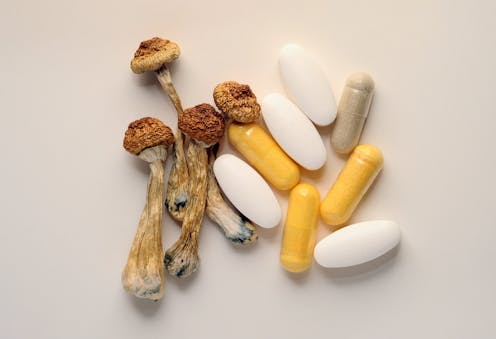
In the mid-20th century, psychedelics were deemed illegal substances with little medical purpose, a high potential for abuse and a lack of safety. However, emerging evidence suggests the opposite; a potential role for these “mind-altering” substances in the treatment of conditions like depression, PTSD and substance use disorders.
With an increasing cultural spotlight, there has been substantial economic growth of the psychedelic drugs market. It is projected to surpass $12 billion globally by 2030. Unsurprisingly, this growth has attracted the interest of corporations and start-ups eager to capitalize on this burgeoning industry.
Legislative restrictions have made it difficult to obtain government funding for psychedelic research, but now corporations are stepping up to fund clinical trials. Although this support may help accelerate researchers’ understanding of psychedelics, it also sparks concern as a conflict of interest.
Table of Contents
How conflicts of interest impact psychedelic research

(Shutterstock)
Corporations work to pursue profit for shareholders, a motivational bias that differs from the goal of science which is to report findings as accurately as possible. At the same time, industry benefits the field by introducing new potential therapies. Nonetheless, there are numerous ways in which conflicts of interest may challenge scientific integrity in psychedelic trials:
-
Research topic selection: Corporations tend to prioritize research fields related to products that can be best commercialized.
-
Investigator psychology: Researchers may receive “gifts” from corporations, introducing a social and professional pressure to conform with their expectations and wishes.
-
Substance selection: Corporate interests are likely to favour substances that can be patented.
-
Population selection: Corporate interests may advocate for strict screening when recruiting volunteers to increase the chance of positive outcomes. This may result in the study cohort being easier to treat, which limits the generalizability of the results to real-world populations.
-
Study design: Corporate interests may favour study designs that are more likely to indicate statistically significant effectiveness, and less likely to identify adverse events.
-
Cost minimization: Corporate interests may favour less frequent sessions or follow-ups, reduced monitoring and fewer open interviews with participants in an effort to reduce costs. These changes make it more difficult to identify adverse events and might allow them to go unreported.
-
Reporting: Publication bias may occur in which scientific journals are more likely to publish positive findings, and negative findings remain unpublished.
-
Media engagement: Corporate interests may favour sensationalist media narratives that are not balanced. An emphasis on positive results can skew the public perception of psychedelics.
-
Participant psychology: Selective reporting in the media may contribute to “excessive enthusiasm” and expectancy bias in participants and researchers. This happens when individuals with positive views about psychedelics are more likely to volunteer for studies and expect positive outcomes.
Consequences for public health
While generally considered safe in medically supervised situations, psychedelics carry unique safety concerns, including psychological vulnerability, perceptual impairment and changes in mood. In reality, the full range of mechanisms, safety risks and long-term effects of psychedelics are not known.
The influence of conflicts of interest on psychedelic studies can contribute to an overly optimistic opinion by researchers, the public and policymakers. This may pose safety risks to the public if legislative changes that increase access are made prematurely, as witnessed with tobacco and opioid industries in the past.
What we can do about it

(Shutterstock)
There are a few ways to address these challenges:
-
Promote alternate funding sources: Government funding opportunities will allow psychedelic clinical trials to occur without or with partial corporate involvement.
-
Transparent reporting of corporate involvement: Disclosure of conflicts of interest is key in fuelling trust and allowing critical interpretation of findings.
-
Responsible reporting in the media: Sensationalist media coverage promotes inaccurate narratives, such as the ability of psychedelics to “cure” mental illness with one dose. Standards of reporting can be developed to ensure that media reports are as accurate as possible.
-
Research regulations and standards: Clinical trial protocols should be registered before the research acquires any corporate funding, with safety data as a main result. The inclusion of independent arbiters could help determine if any adverse events are related to the treatment.
-
Public education: Media literacy and public education programs, and ethical science communication, could help the public better understand psychedelic research results as well as promote informed policy changes and safe use.
-
Funding real-world evidence: Research funding agencies should support real-world cohort studies measuring long-term effects and health outcomes of psychedelic use.
Considering how to reduce the impact of conflicts of interest on psychedelic studies could help avoid public health risks and further setbacks on research efforts for these potentially life-saving therapies.
While market-driven solutions have contributed to the development of life-changing therapies, more awareness is needed for how corporate interests may threaten research integrity and pose public safety risks in the pursuit of profit.
![]()
Elisa Brietzke receives funding from PSI Foundation (unrelated to this article) and Queen’s University School of Medicine.
Marco Solmi receives funding from CIHR, and has received honoraria/has been a consultant for AbbVie, Angelini, Lundbeck, Otsuka.
Elena Koning does not work for, consult, own shares in or receive funding from any company or organisation that would benefit from this article, and has disclosed no relevant affiliations beyond their academic appointment.























